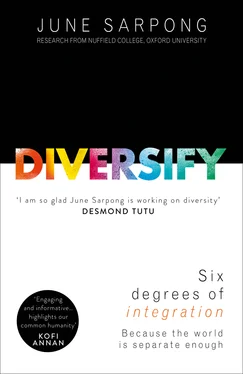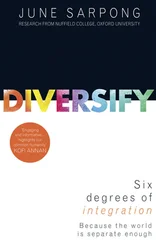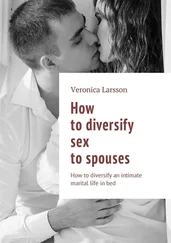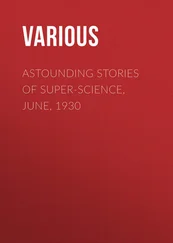I decided to write this book, often drawing on my own experiences, to present the issues that a lack of diversity is causing for us today, alongside the arguments for the social, moral and economic benefits of diversity. You’ll also find practical tools and ideas for how we might go about creating a new normal that is equitable, diverse and prosperous.
Why now?
On 28 August 1963, Dr Martin Luther King – for me, one of the greatest men of the twentieth century, without question – delivered his iconic ‘I Have a Dream’ speech. I have always found his words, laying out such a powerful and clear vision for global equality and unity, and delivering a message of hope that we could all be part of, absolutely mind-blowing. He presented a comprehensive vision and framework for the much-needed journey that would get us there, and I firmly believe it’s one of the best examples of the type of society we should all be striving to create. Now, over half a century later, where are we on that journey that Dr King laid out for us, and what does this mean for humanity?
The sad truth is, it’s a journey that many of us are yet to embark on. Prophesying his own assassination, King ended his last speech with ‘I may not get there [to the Promised Land] with you’, and indeed he didn’t. And there have been claims that if Dr King were still alive he would be incredibly disappointed by what he saw: a world divided by gender, nationality, class, sexual orientation, age, culture, and, of course, the two big Rs of Race and Religion.
I would argue that, actually, Dr King would not be so disappointed in what he saw , but rather in what he couldn’t see . It’s what lies beneath the surface and facade of ‘tolerance’ and political correctness that causes the real malaise – the limiting viewpoints that are hidden inside us, that we rarely speak of but often think about and, worse, sometimes act upon. Whether they are conscious or unconscious, it’s these hidden, unexamined attitudes that shape the inequality we see in society.
The evidence of that is clear in the political upheaval that has occurred in both the UK and US recently. There are many parallels between the shock results of Britain’s Brexit referendum and the Electoral College victory of Donald Trump in the US in 2016. As a board member of the official Remain campaign, I was certainly not in favour of Brexit and put all my passion and energy into trying to convince the British public that Britain was Stronger IN Europe. The result was a painful and bitter blow, and one that still hurts. We will only see the true fall-out now that Article 50 has been triggered and the negotiations have begun …
However, we are beginning to see what this new world looks like. For many, Brexit represented freedom. Yet one of the worrying repercussions of Brexit, which the experts didn’t anticipate, is the rise in hate crime and the open season on anything or anyone deemed ‘other’. Since the referendum I’ve heard phrases such as, ‘This doesn’t feel like modern Britain’, ‘A victory for xenophobia’, and ‘The revolt of the working class’. The same seems to be true of Donald Trump’s victory in the US, with David Duke, the former KKK leader, celebrating it as ‘one of the most exciting nights of my life’. I feel huge disappointment for those who wanted us to stay part of the EU, and fear what might happen to tolerance of the ‘other’ in the US – but, more importantly, I want to understand why these results went the way they did, shaking up the status quo in response to campaigns which focused on immigration and fear. The short answer is that both Brexit and Trump were symptoms of our failure to address the issues of fairness and inequality in our globalized economy.
The majority of us recognize that there are things greater than ourselves that can unite us: the world we share and our common humanity. We know that the need for understanding, connection and solidarity as one human family is more urgent now than ever. The greatest challenges of our time demand our cooperation. But how do we achieve this? When we have been separate for so long, change is not easy. But it is necessary. That’s where this book comes in.
Why me?
The daughter of Ghanaian immigrants, I was born and raised in the East End of London, home to a diverse range of people. The part of town that I grew up in, Walthamstow – or Wilcomestu , as the Anglo-Saxons called it – means ‘place of welcome’. Coincidentally, the Ghanaian greeting for hello is Awaakba , which also means ‘welcome’, so being welcoming is part of both my British and Ghanaian heritage – literally.
During my early years, Walthamstow more or less lived up to its name. We had the longest street market in Europe, where you could get anything from anywhere. The older generation of market stall-holders were mainly white working-class survivors of the Second World War. They were community-minded, and would call out to you if they knew your mum, chucking you an apple or a bag of sweets from their stall. My school was like a blue-collar version of the UN and proclaimed the belief that diversity was an asset. All the main religious holidays were celebrated – my Indian friends always brought in the best sweets on the Guru Nanak celebration. I was well liked and, being an inquisitive soul, I often found myself at my friends’ houses celebrating Shabbat, Eid and Diwali. My best friend, Levan Trong, was Chinese Vietnamese, so this meant free Mandarin lessons and amazing New Year parties.
This multicultural upbringing served as a great basis for my media career, paving the way for me to connect comfortably with people from all walks of life. After leaving school, I started an internship with Kiss FM, a vibrant, fresh radio station that looked to unite the young people of London through music. So wherever I went, it was a given for me that difference was not a problem. In fact, it was cool, and what London was all about. I carried this belief with me from radio to television, to my first presenting job. I was getting to do what I had enjoyed my entire life: meeting and talking to people from anywhere and everywhere.
In 2008 I moved to the US in the hope of finding that holy grail: the secret formula for ‘cracking America’. I wouldn’t say I ‘cracked’ America – rather, I made a small dent in her West and East Coast – but with the support and mentorship of Arianna Huffington, Donna Karan and Sarah Brown, I was able to sample a slice of the American Pie when they helped me to co-found a women’s network that was designed to facilitate this generation’s female leaders paying it forward to the next: Women: Inspiration and Enterprise (WIE) (www.wienetwork.co.uk).
I was also lucky enough to start working in American TV quite quickly, and one day, when I was filming in Las Vegas, a young sound assistant appeared on set. I noticed him straight away – and immediately felt uneasy around him. He hadn’t behaved aggressively towards me, but he was covered in tattoos. And I’m not talking David Beckham-style ink, but rather what looked like gang markings. I suspected he’d probably had a tough upbringing, possibly had a few run-ins with the law in his time. But had I really just painted this picture and gained this insight into another person’s life based on some tattoos and a bad ponytail? Yes, I had. And, regardless of the illogic of my assumptions, I began to feel intimidated.
As a woman of colour, I am all too aware of the problems that can be caused by stereotyping. In fact, being excluded as a result of being a woman, and being excluded because of your race, are two forms of discrimination I understand first-hand. So you might think that I, of all people, should know better, and should get over my discomfort and preconceived ideas and just have a conversation with this man. But in that moment I couldn’t do it. And in that moment I suddenly understood both sides of this enigma – and how our fear of the ‘other’ (whatever that ‘other’ is for you) subconsciously influences our behaviour. Whether we like it or not, ‘other-izing’ is something we all do, and ‘other-isms’ are something we all have.
Читать дальше












